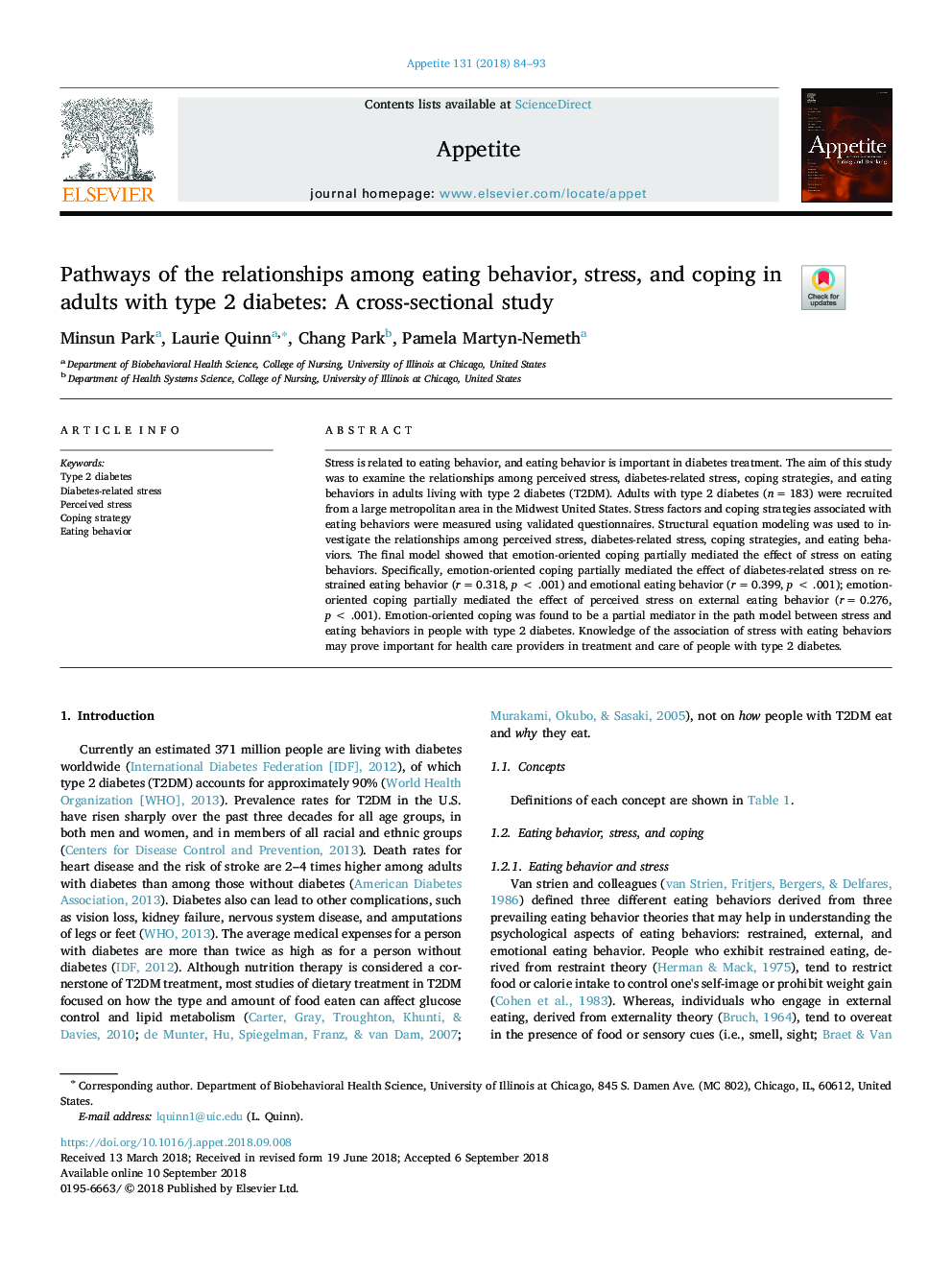| Article ID | Journal | Published Year | Pages | File Type |
|---|---|---|---|---|
| 10140386 | Appetite | 2018 | 10 Pages |
Abstract
Stress is related to eating behavior, and eating behavior is important in diabetes treatment. The aim of this study was to examine the relationships among perceived stress, diabetes-related stress, coping strategies, and eating behaviors in adults living with type 2 diabetes (T2DM). Adults with type 2 diabetes (nâ¯=â¯183) were recruited from a large metropolitan area in the Midwest United States. Stress factors and coping strategies associated with eating behaviors were measured using validated questionnaires. Structural equation modeling was used to investigate the relationships among perceived stress, diabetes-related stress, coping strategies, and eating behaviors. The final model showed that emotion-oriented coping partially mediated the effect of stress on eating behaviors. Specifically, emotion-oriented coping partially mediated the effect of diabetes-related stress on restrained eating behavior (râ¯=â¯0.318, pâ¯<â¯.001) and emotional eating behavior (râ¯=â¯0.399, pâ¯<â¯.001); emotion-oriented coping partially mediated the effect of perceived stress on external eating behavior (râ¯=â¯0.276, pâ¯<â¯.001). Emotion-oriented coping was found to be a partial mediator in the path model between stress and eating behaviors in people with type 2 diabetes. Knowledge of the association of stress with eating behaviors may prove important for health care providers in treatment and care of people with type 2 diabetes.
Related Topics
Life Sciences
Agricultural and Biological Sciences
Food Science
Authors
Minsun Park, Laurie Quinn, Chang Park, Pamela Martyn-Nemeth,
